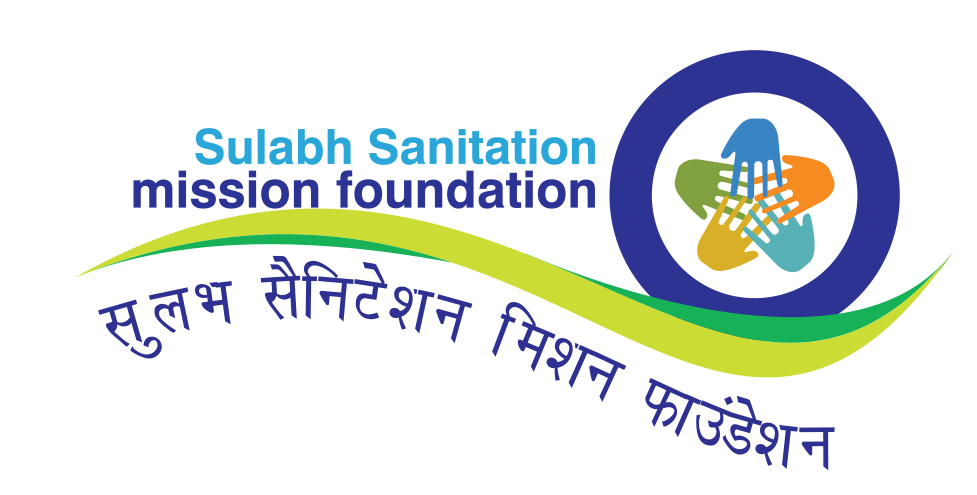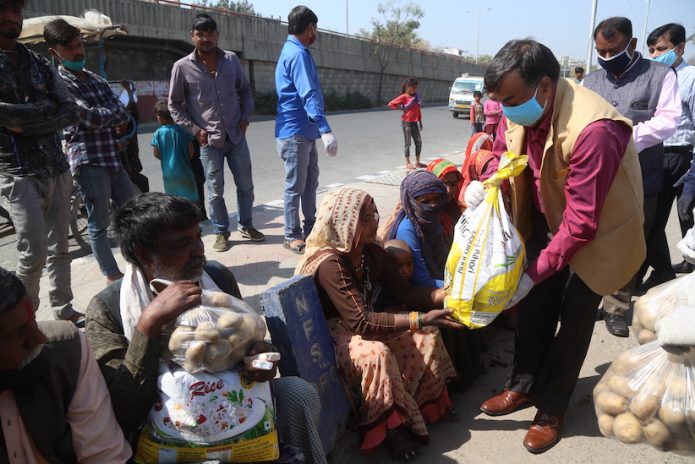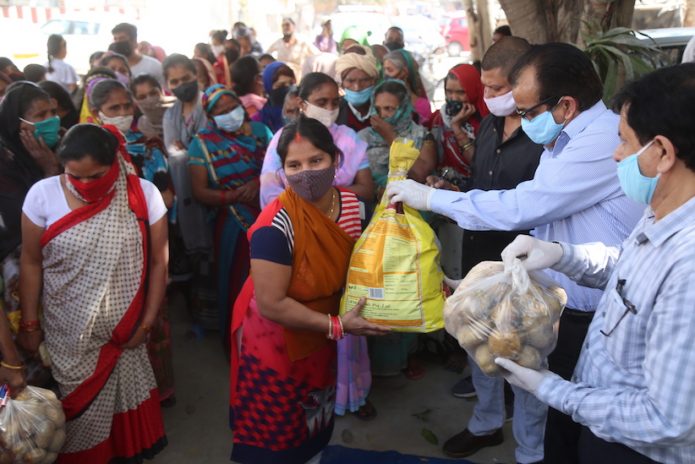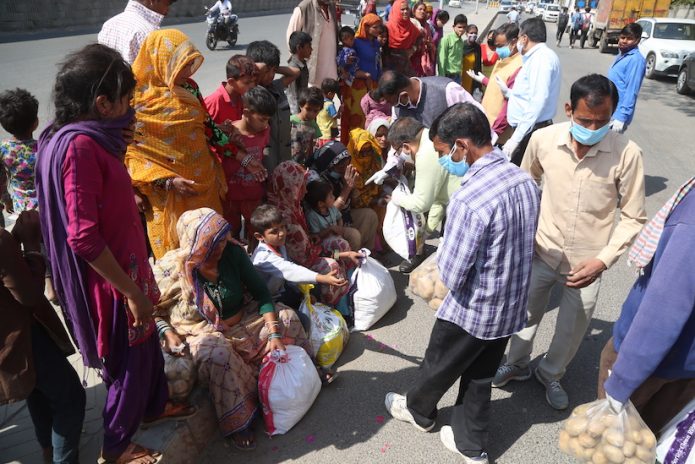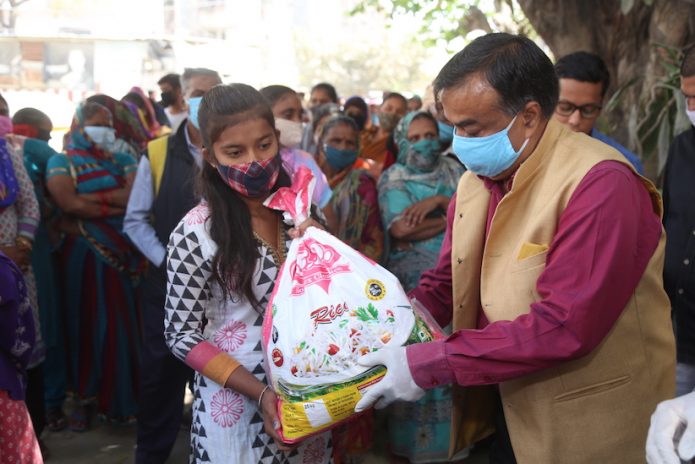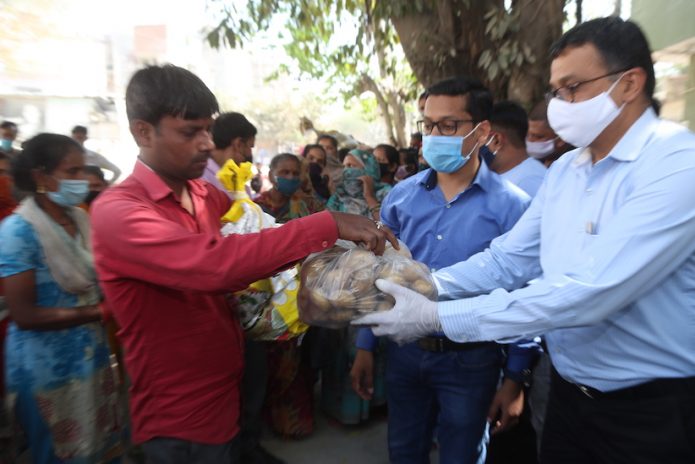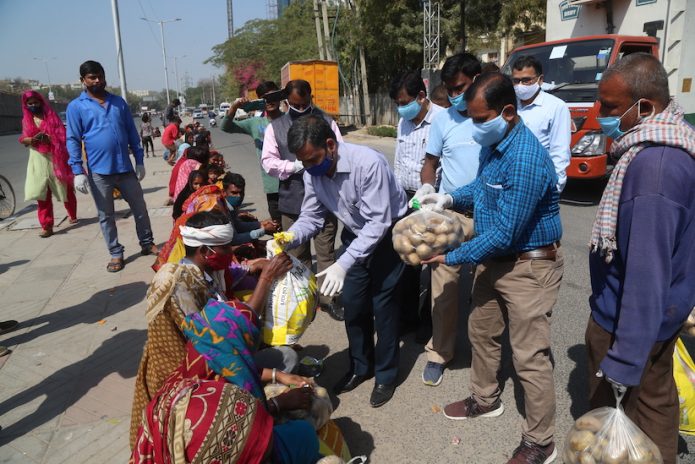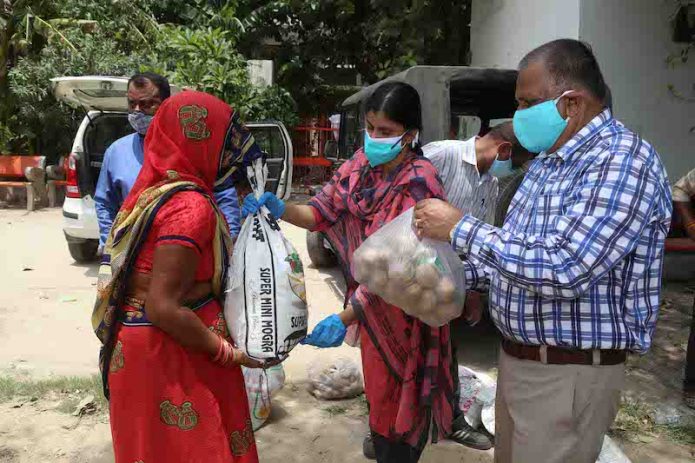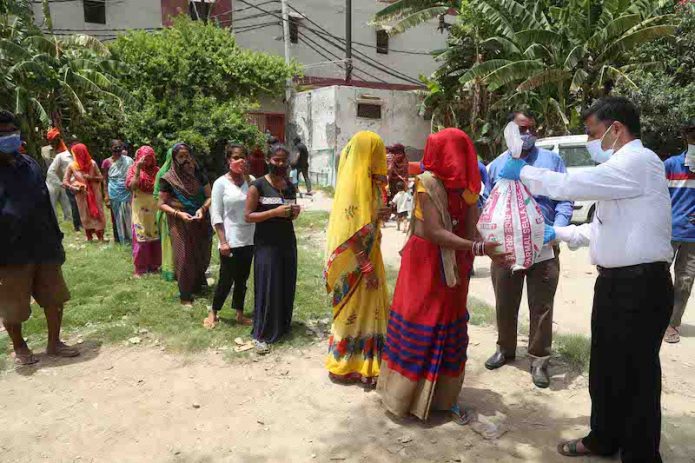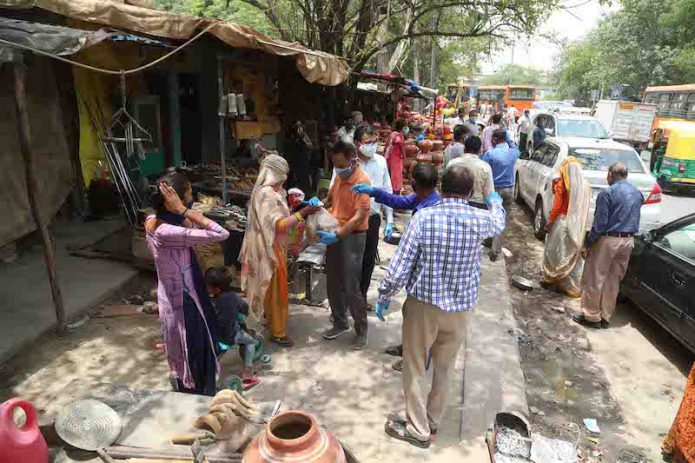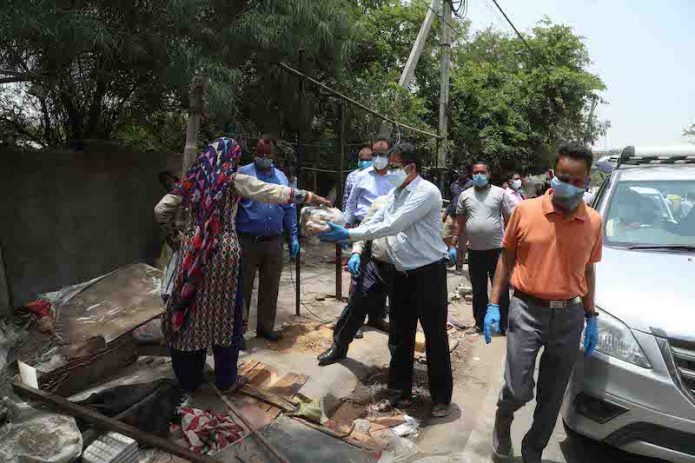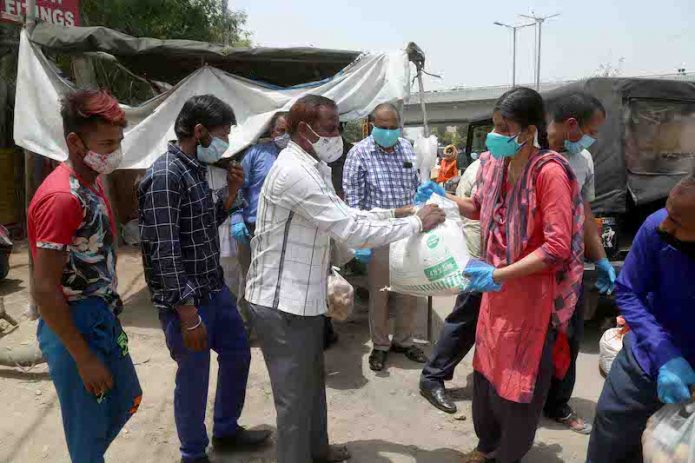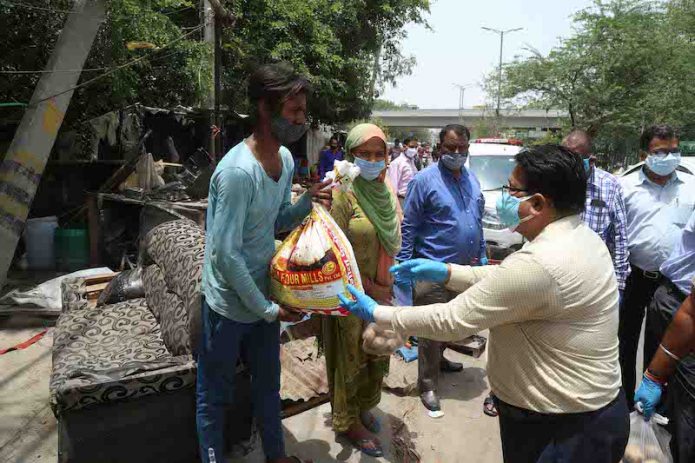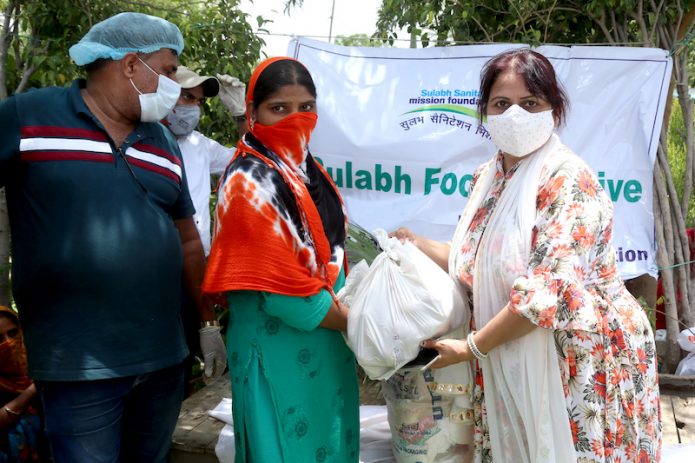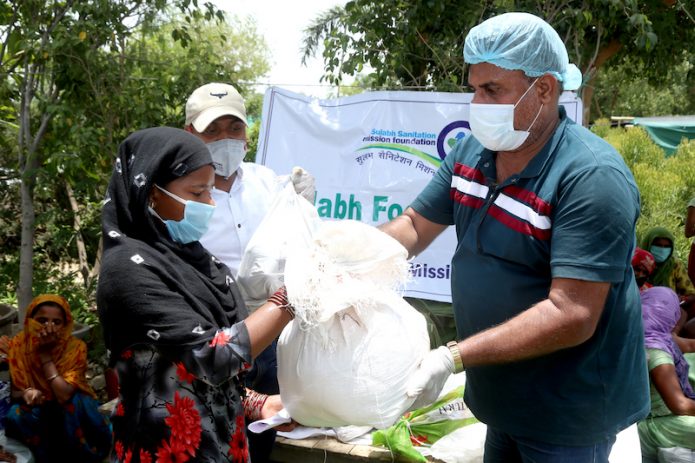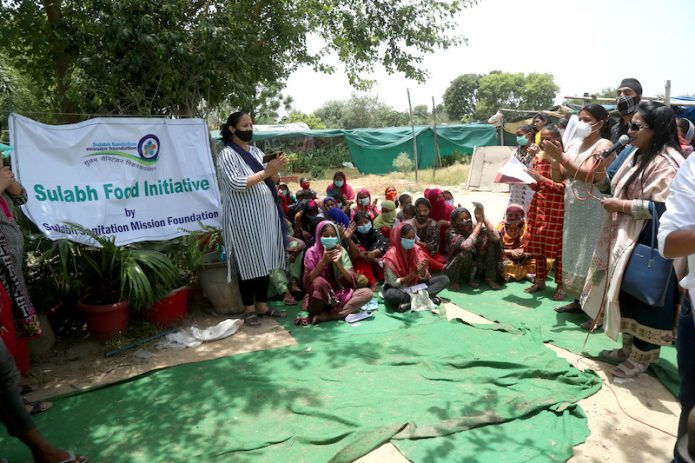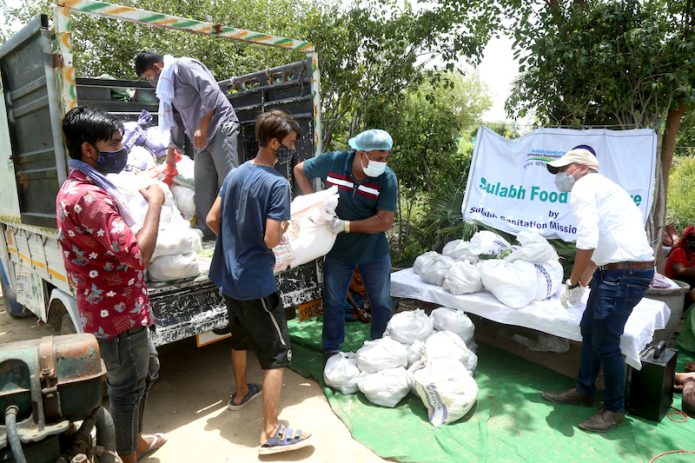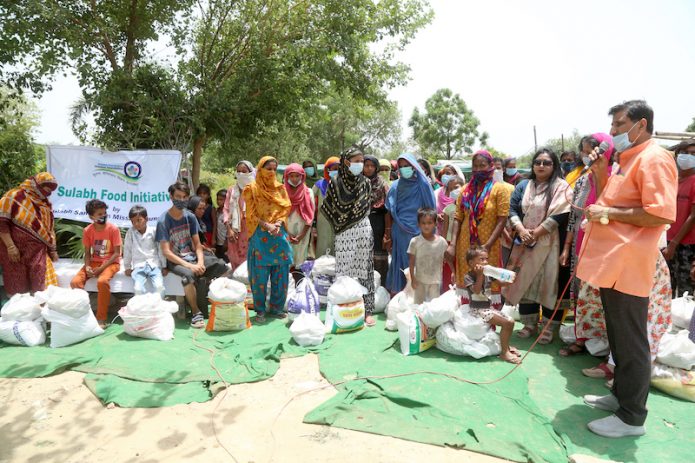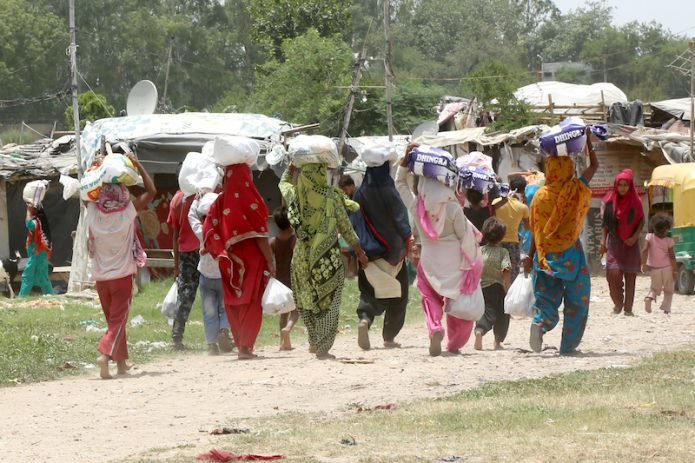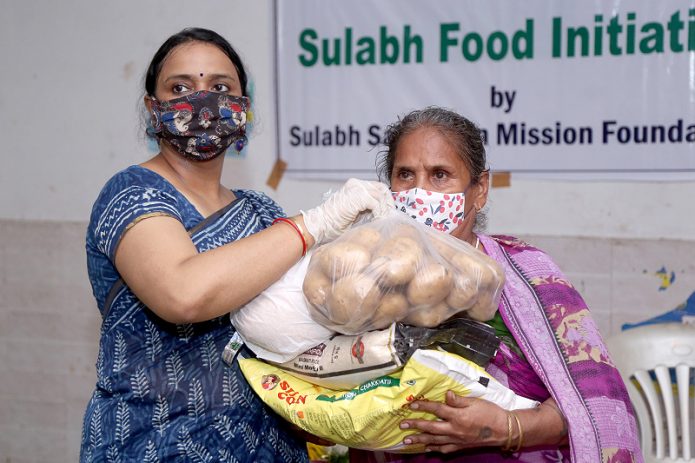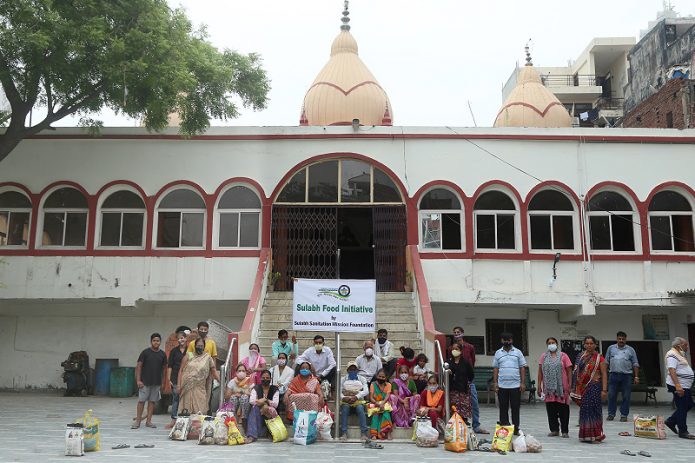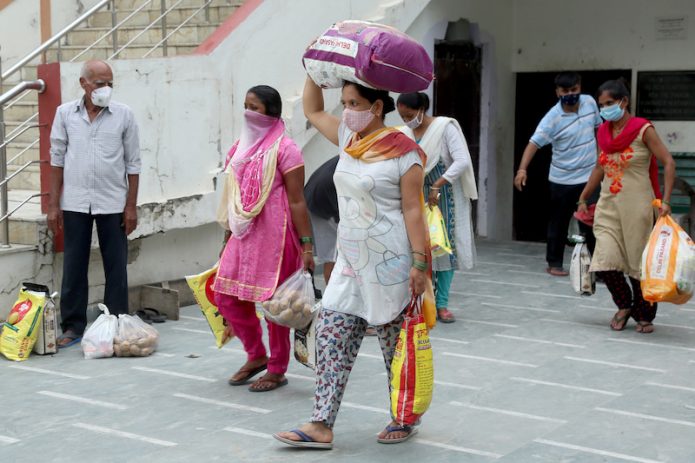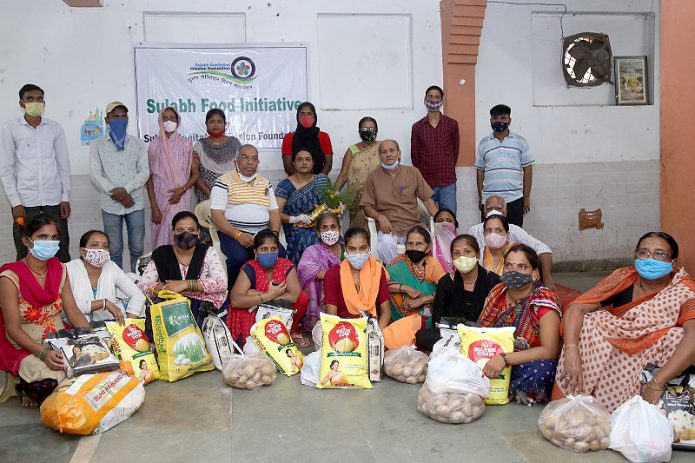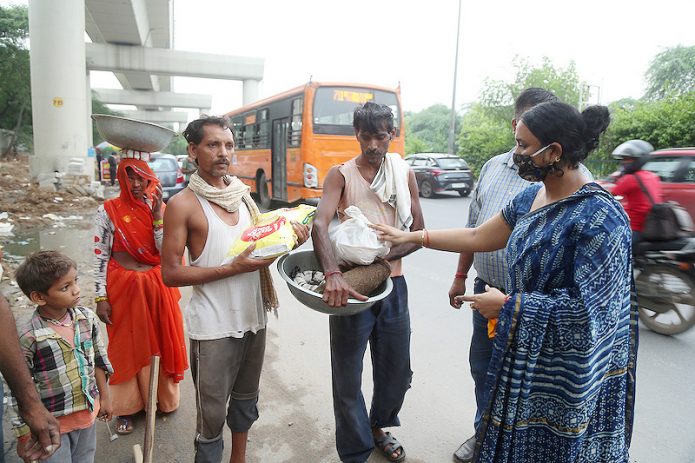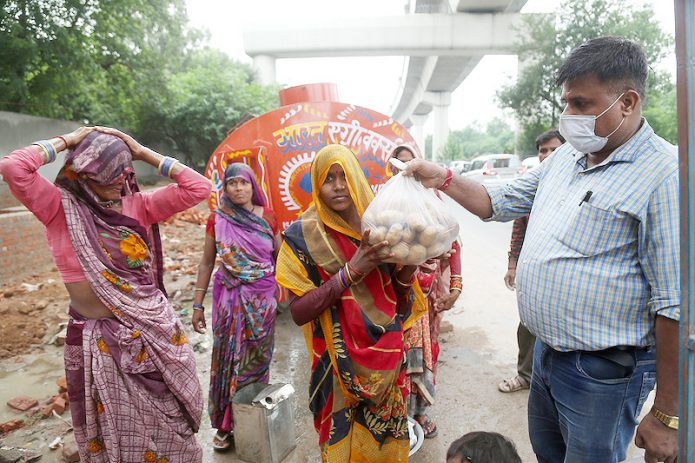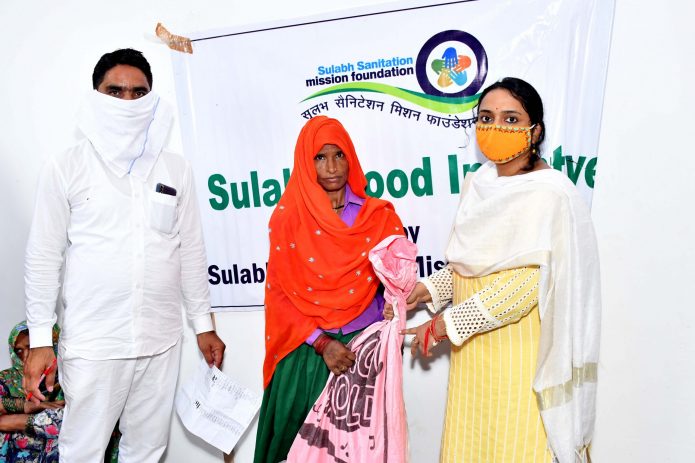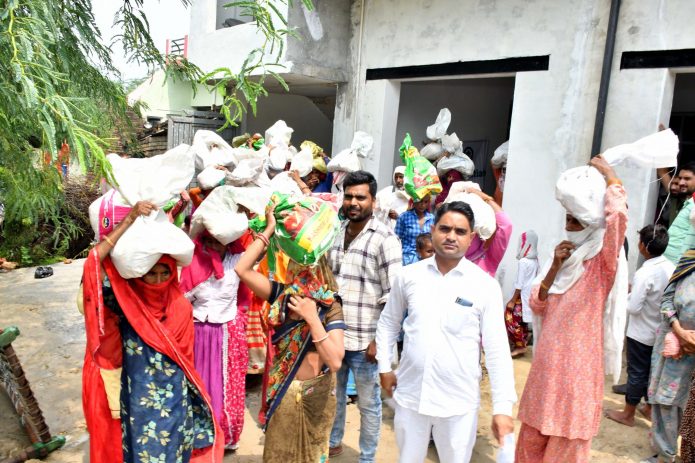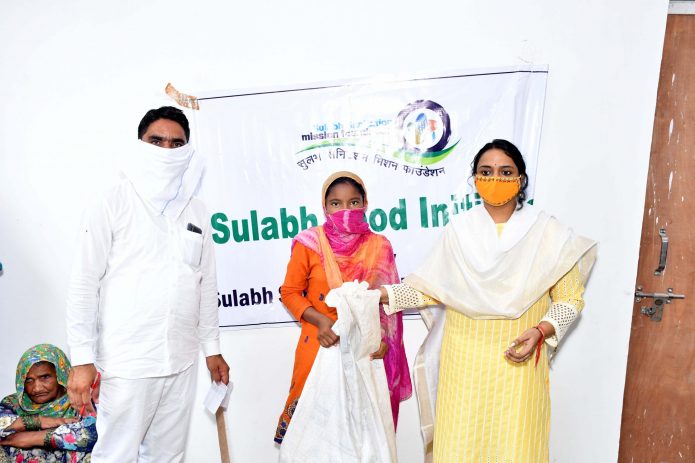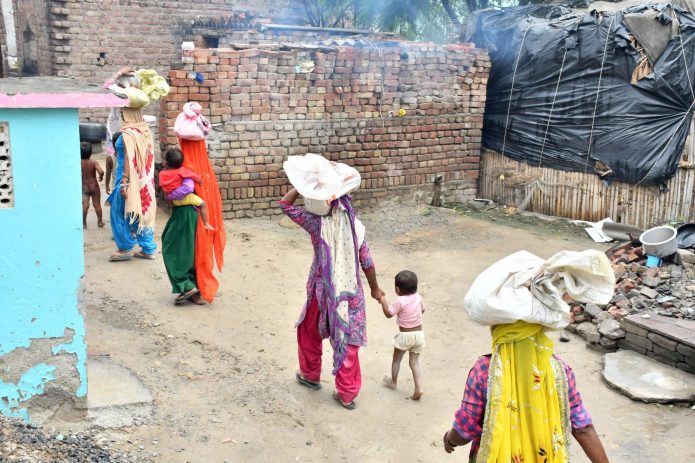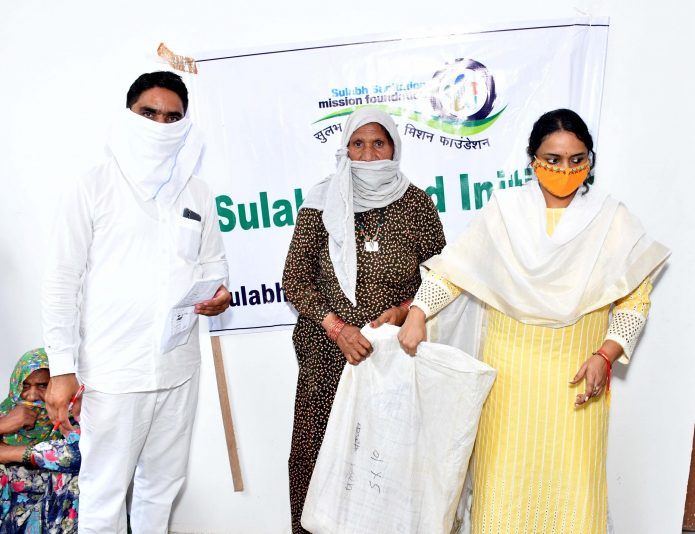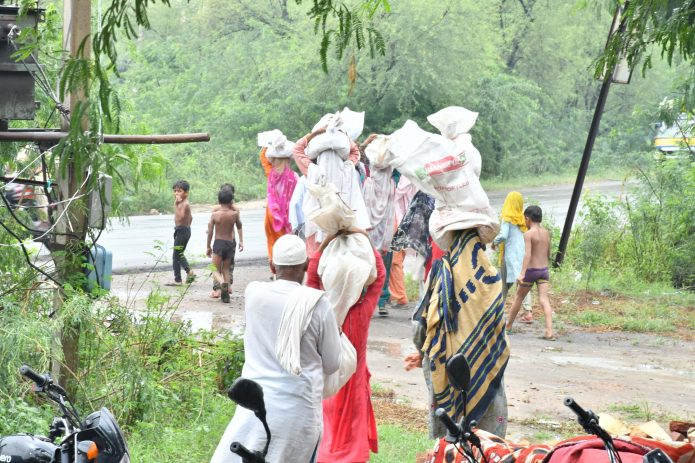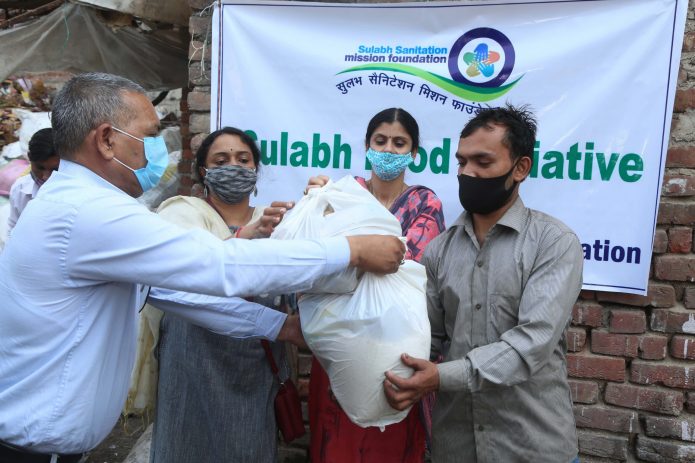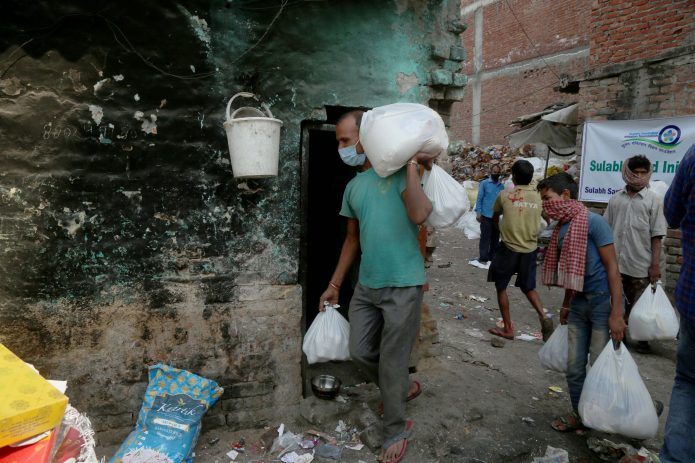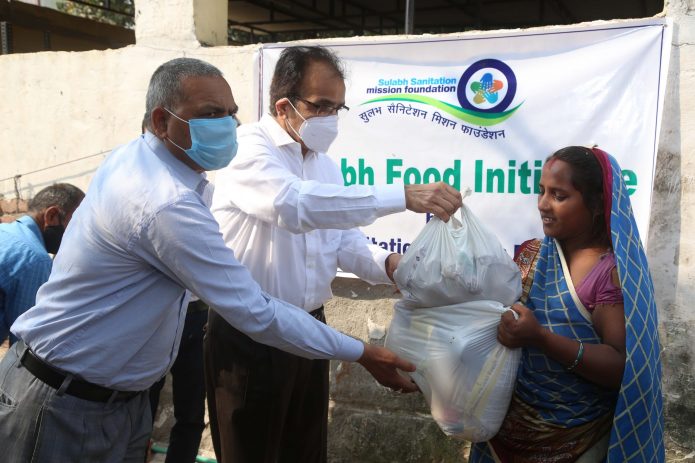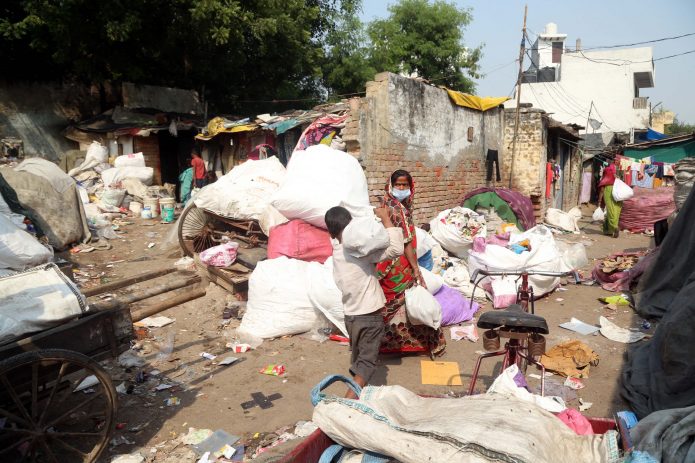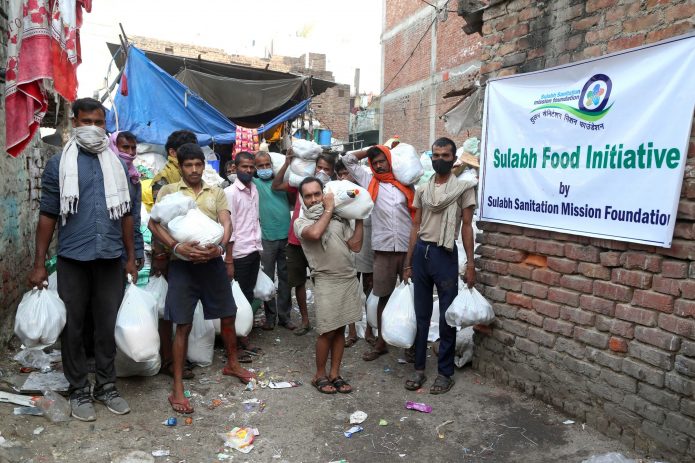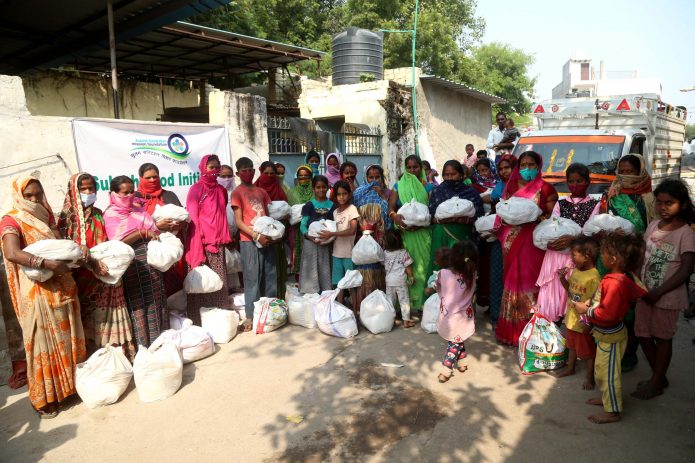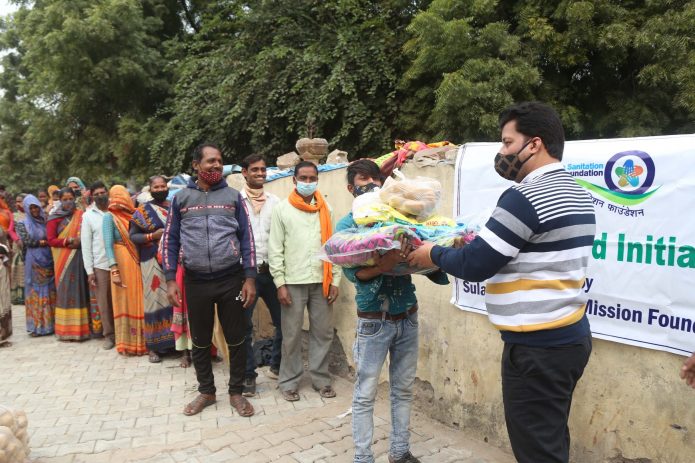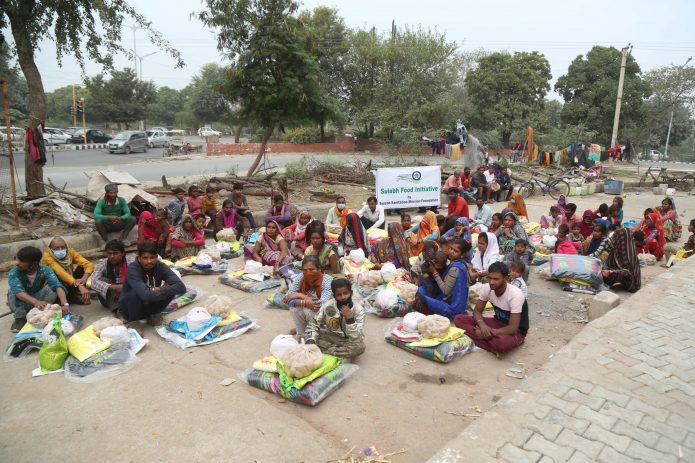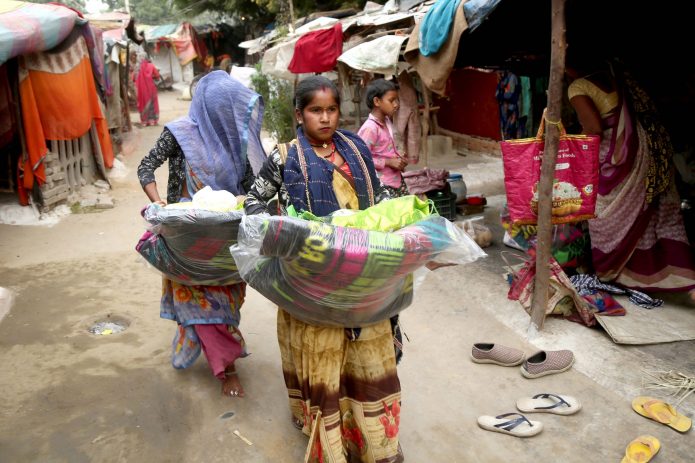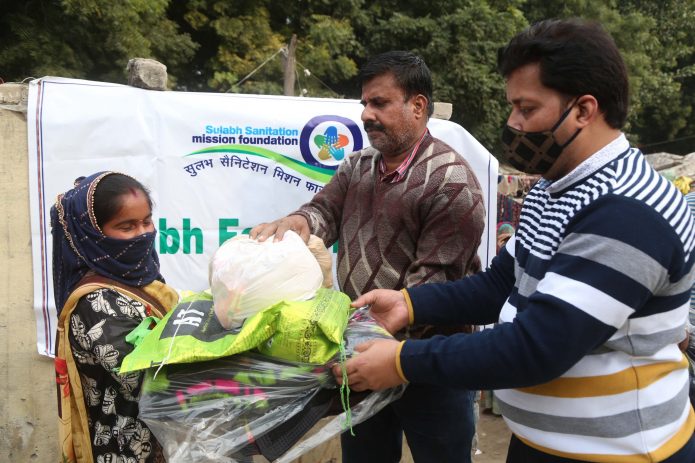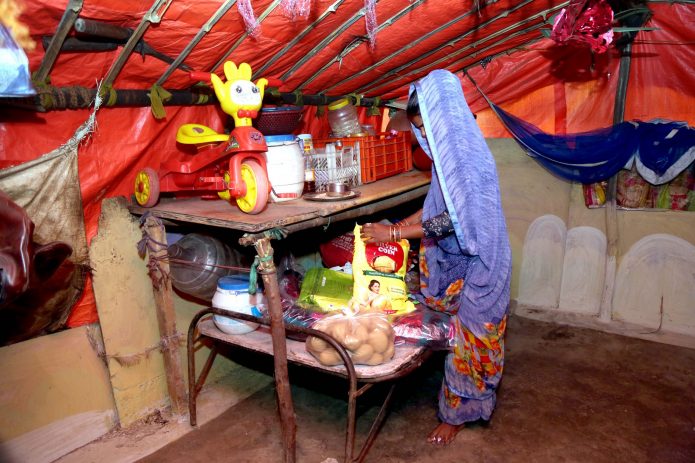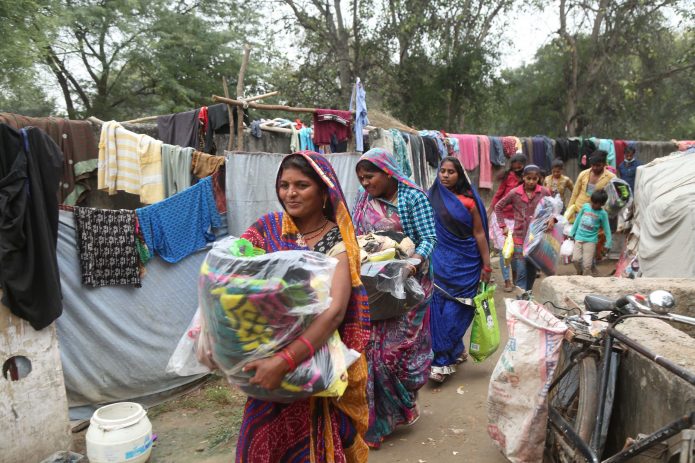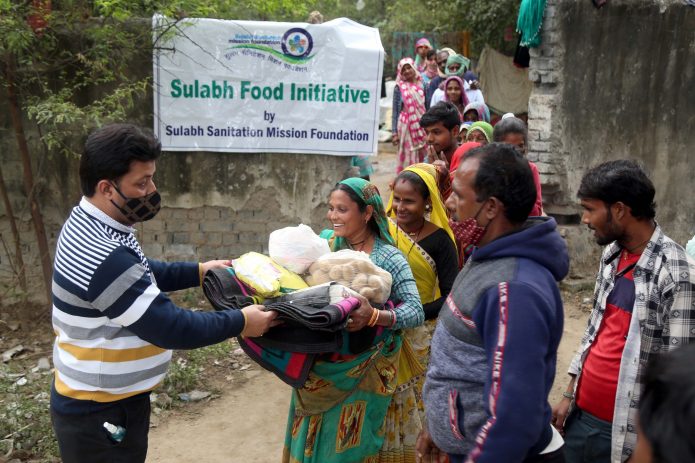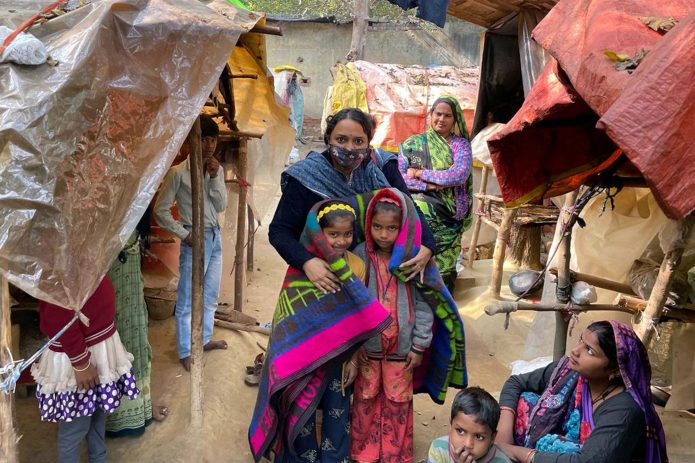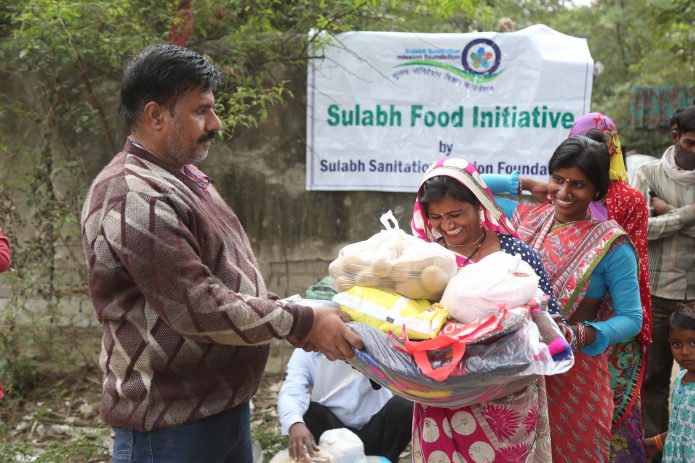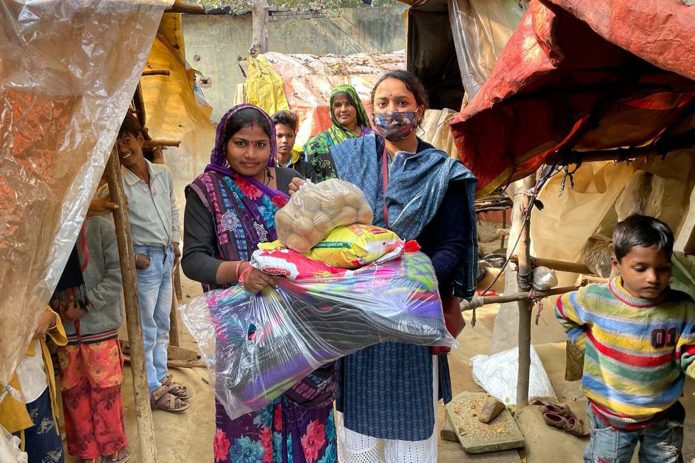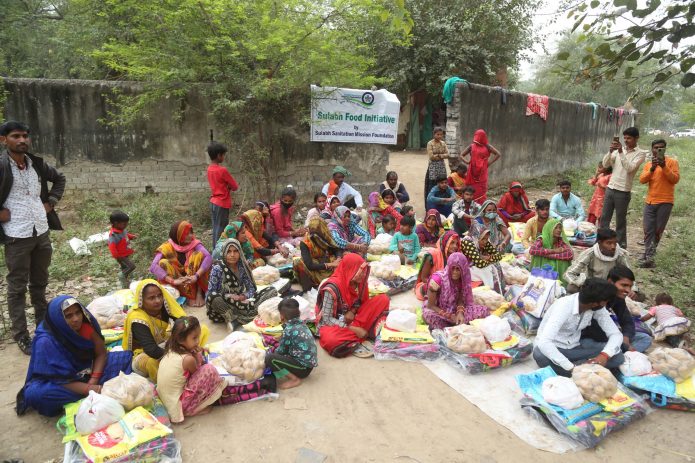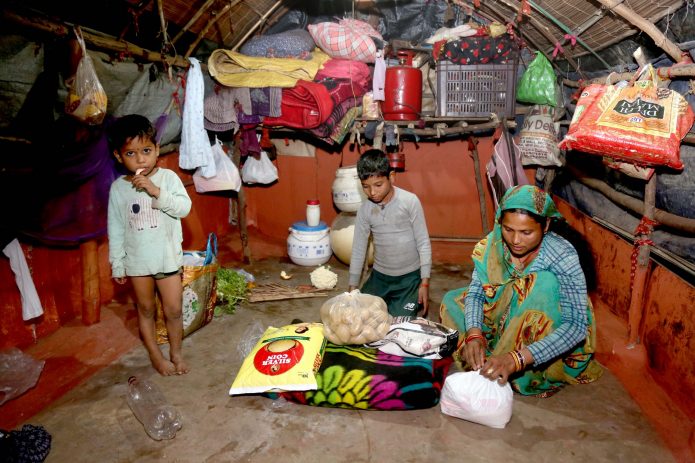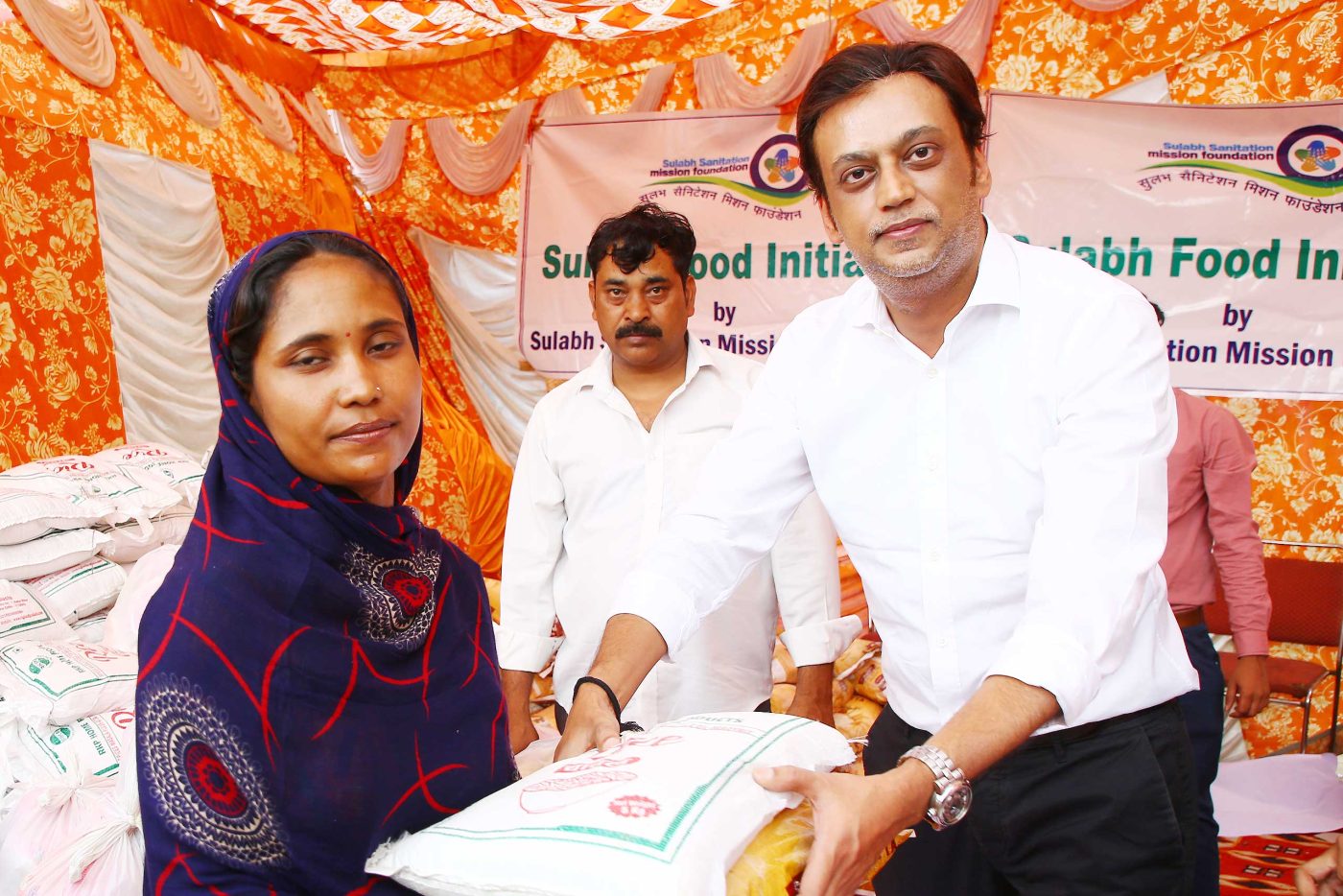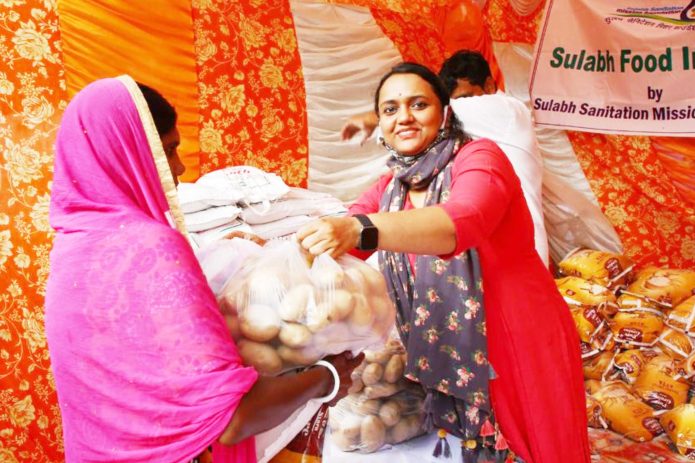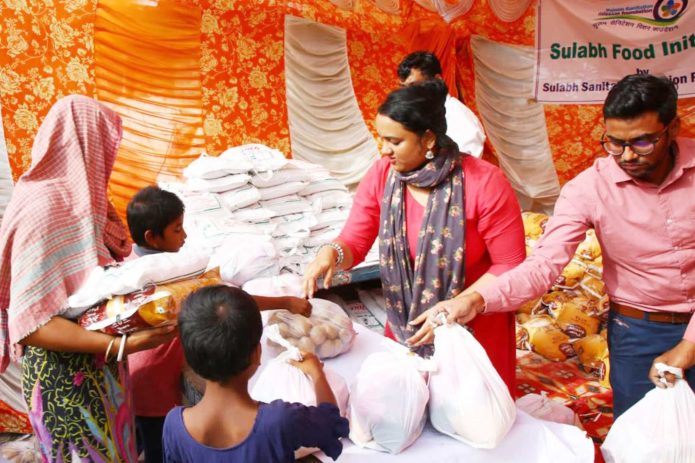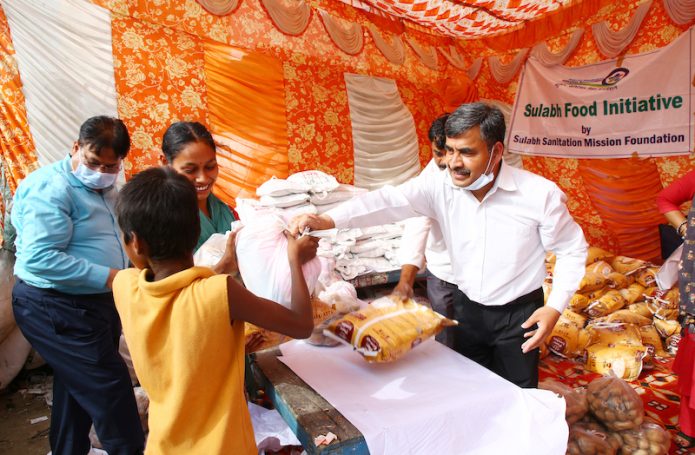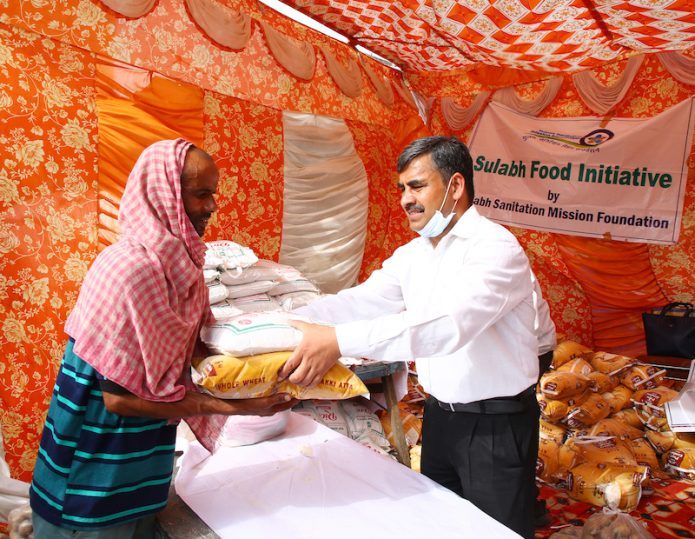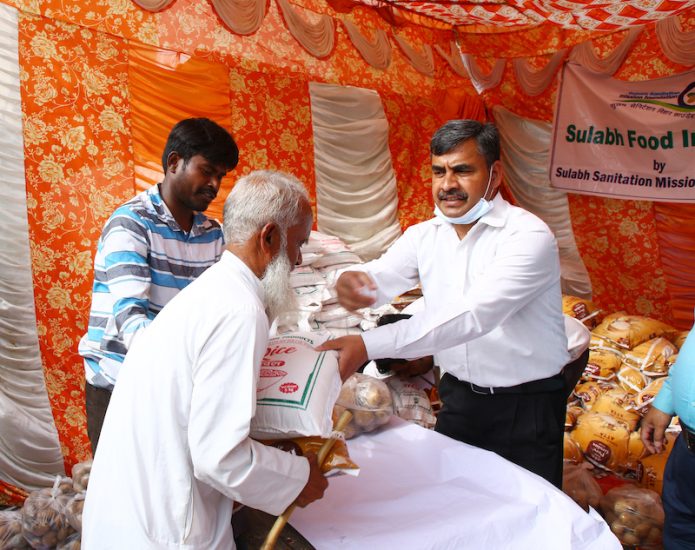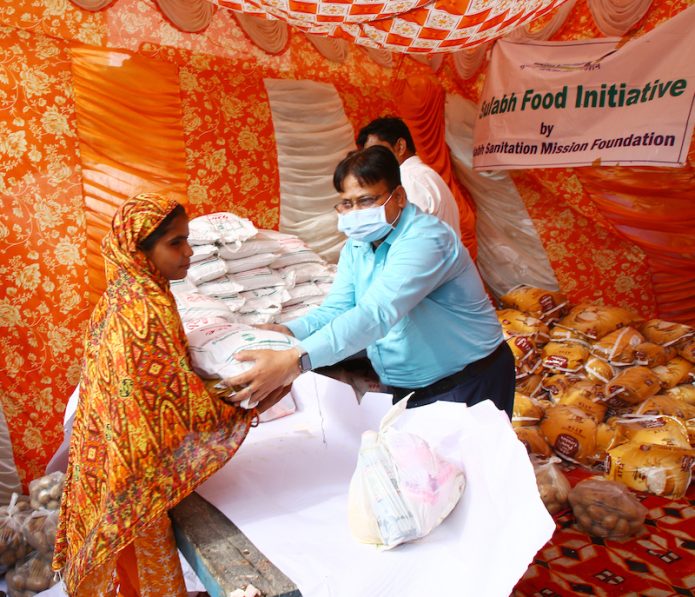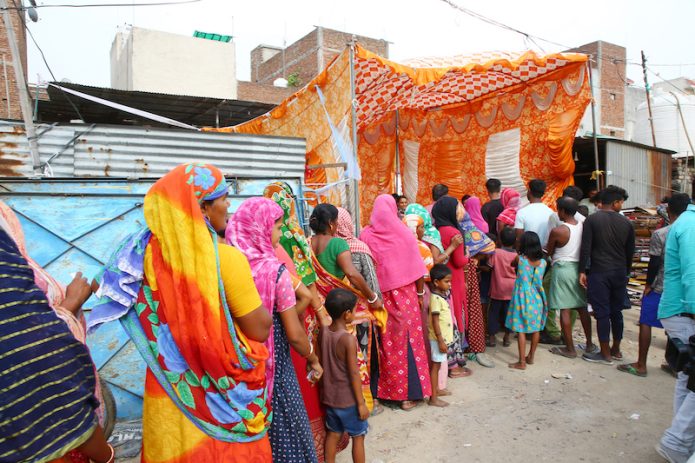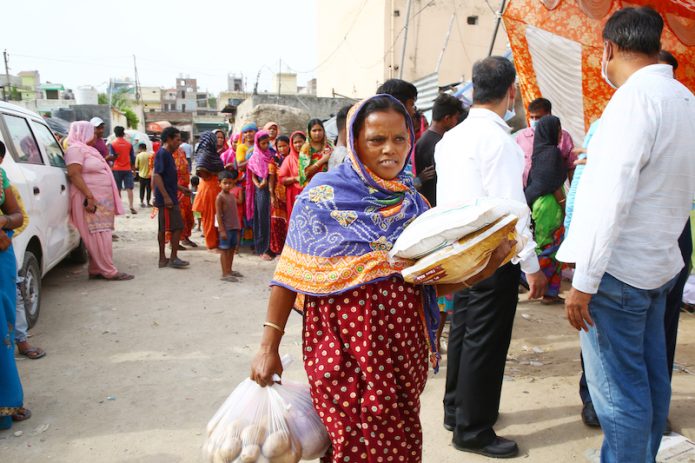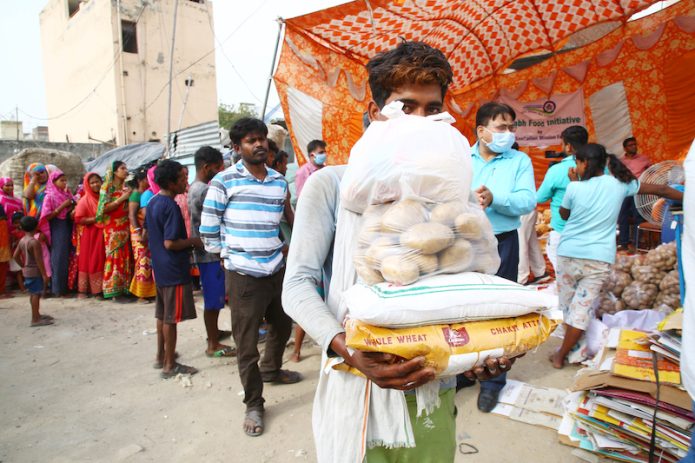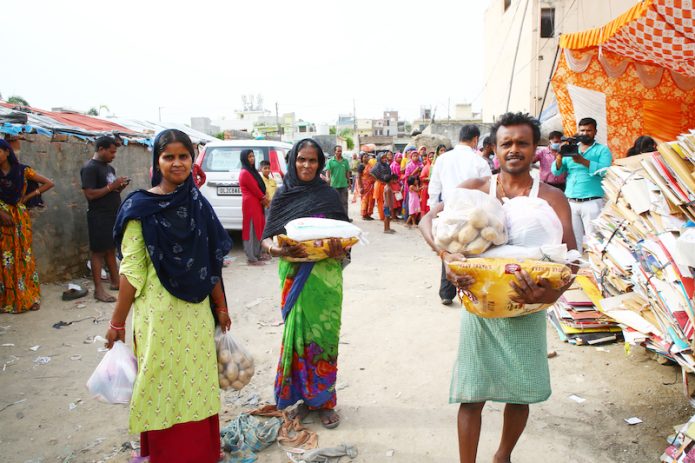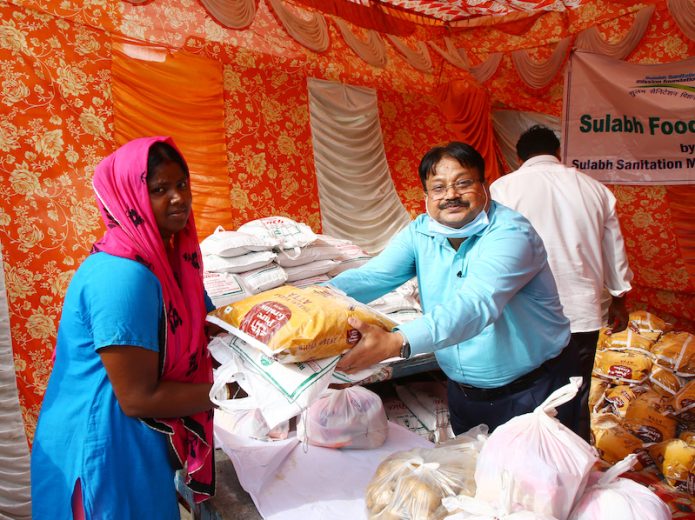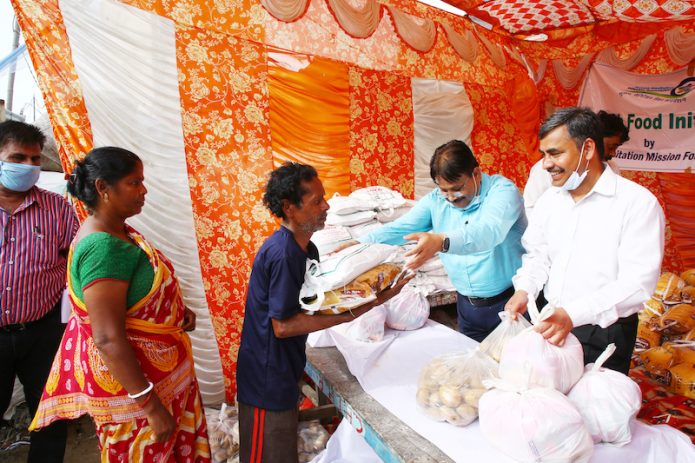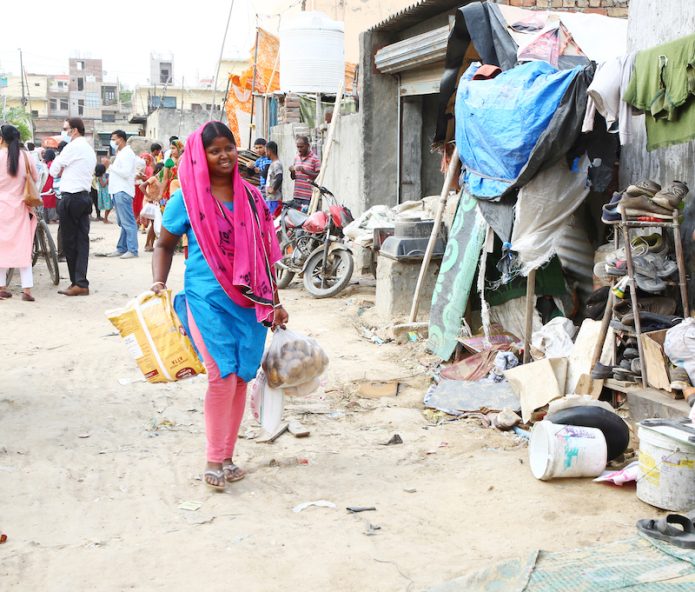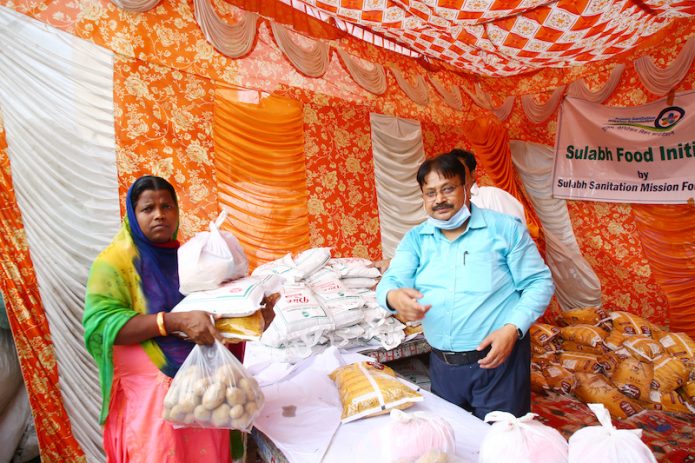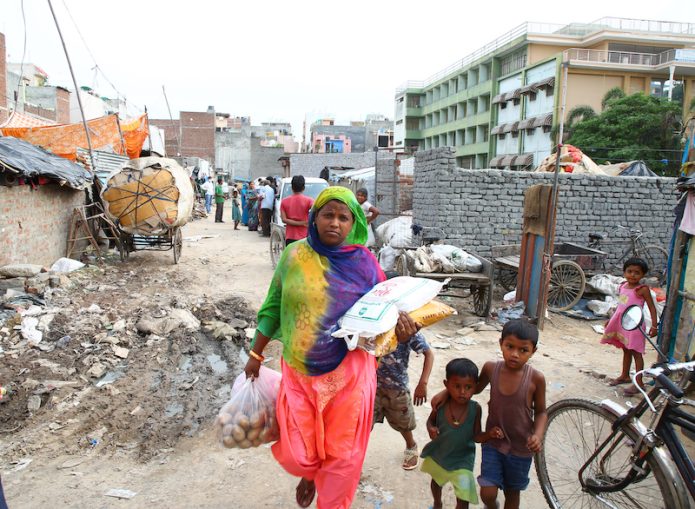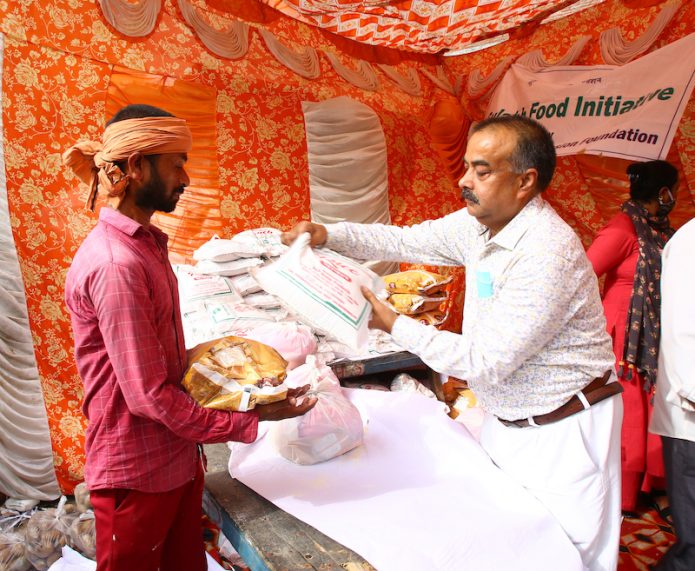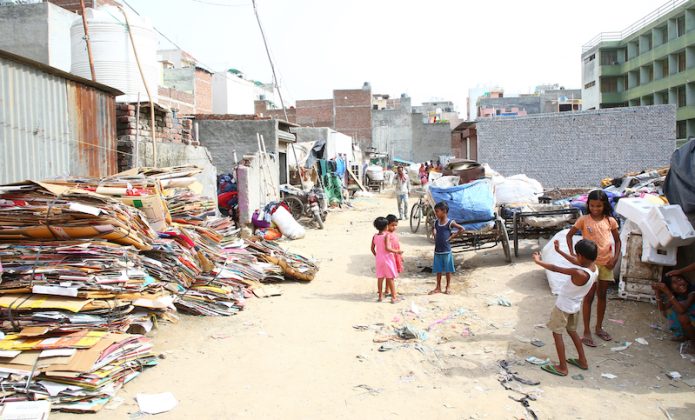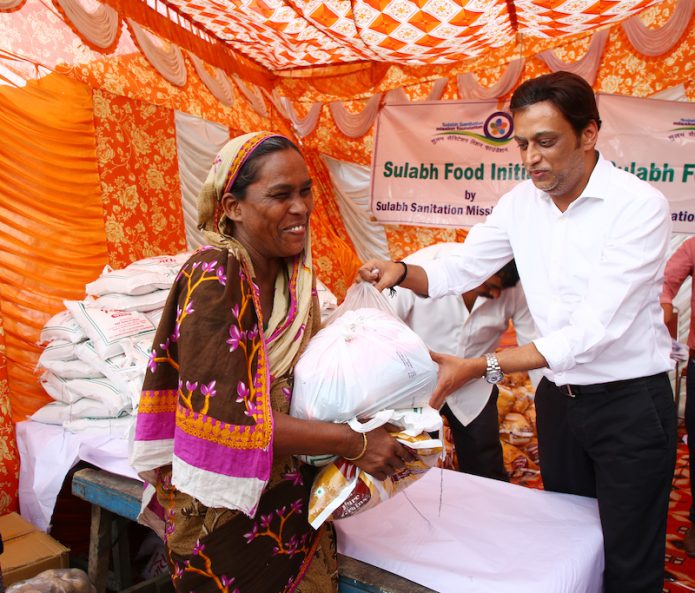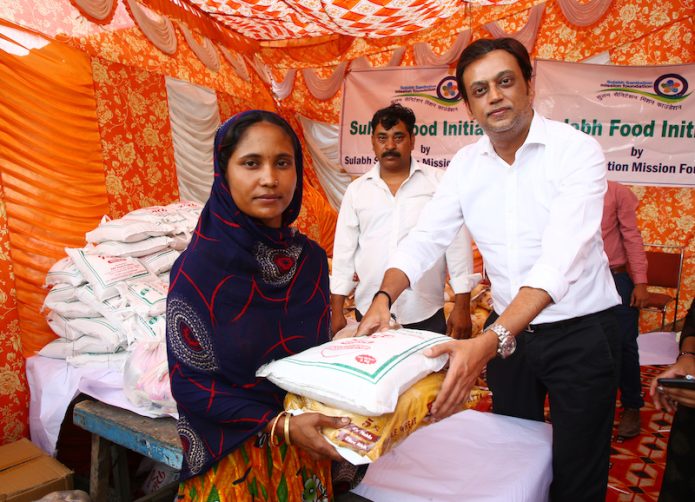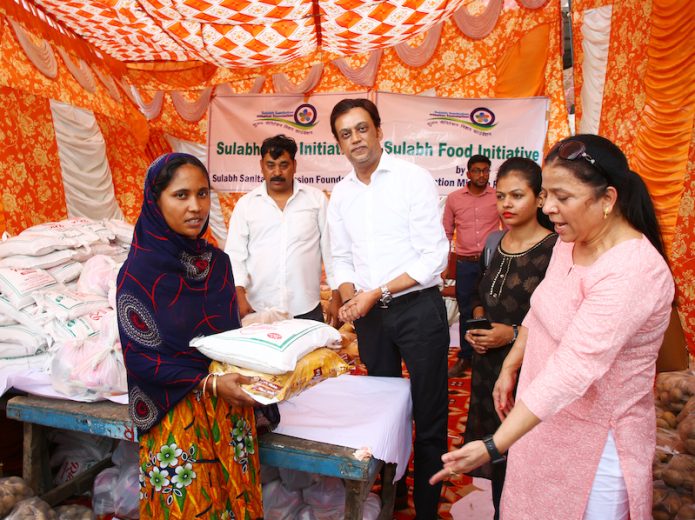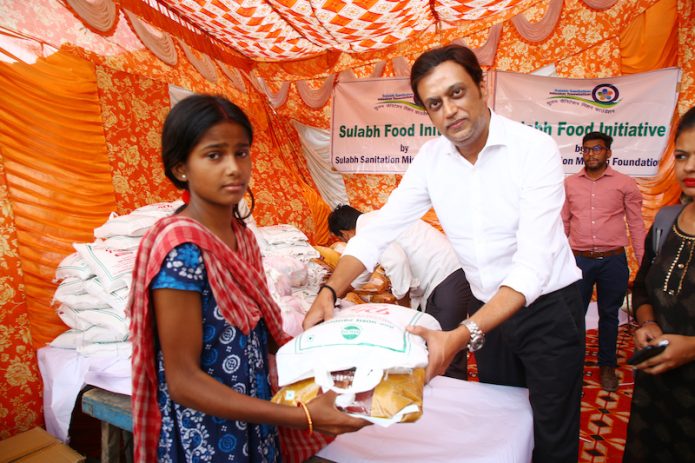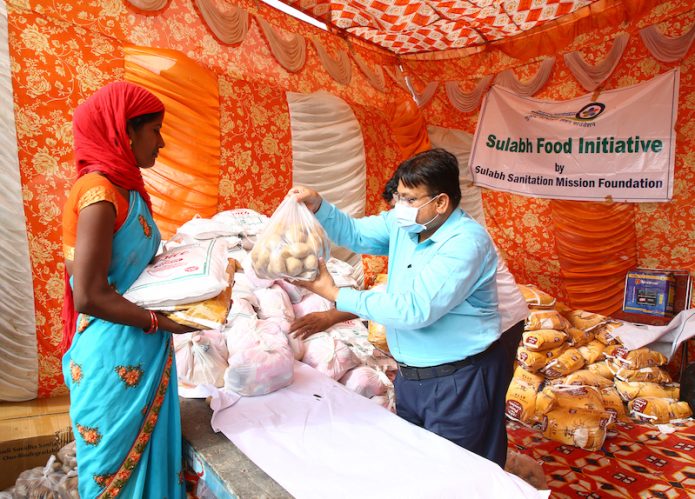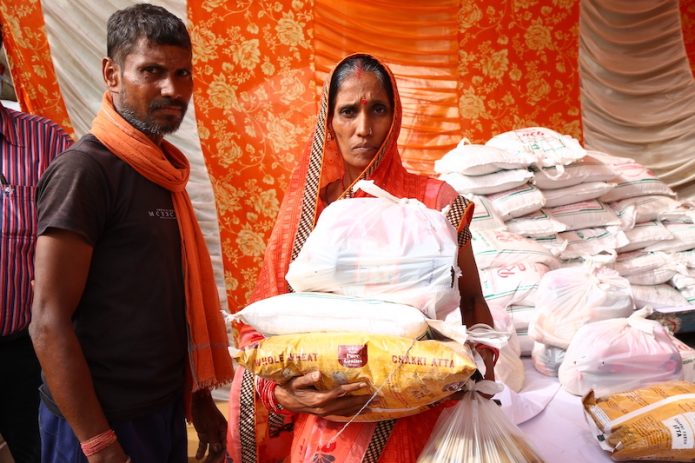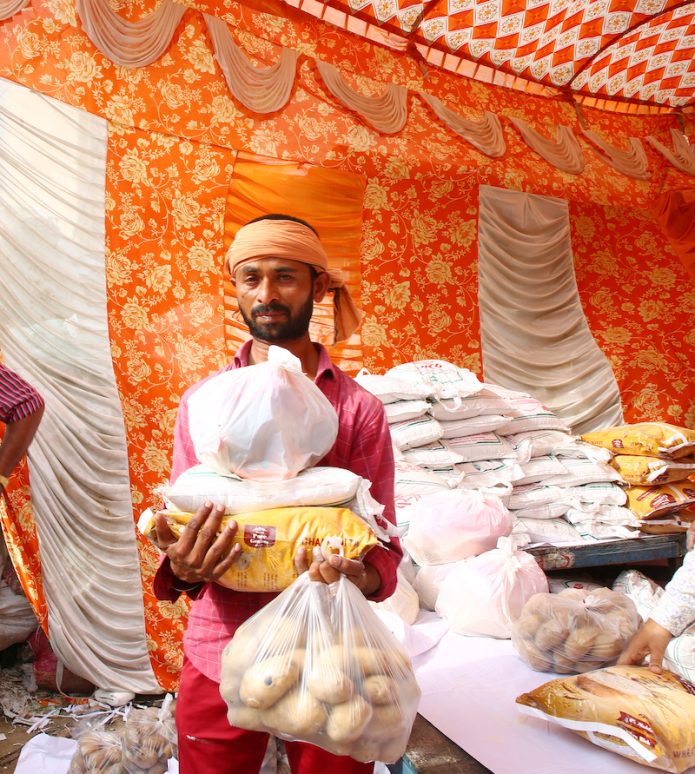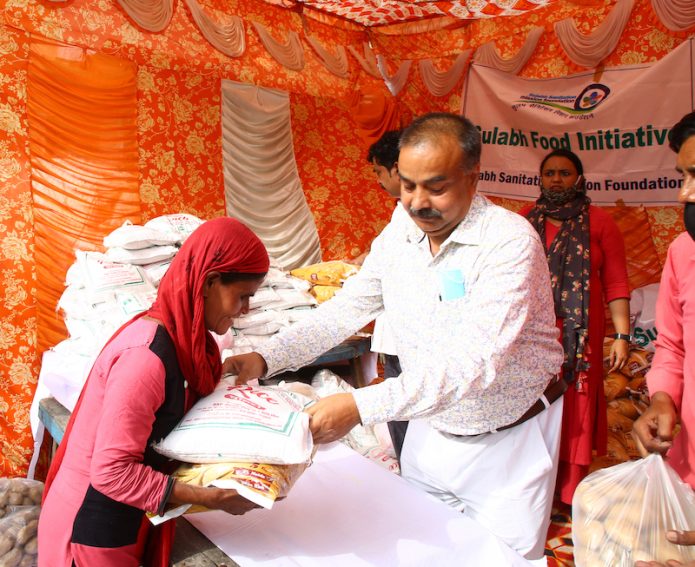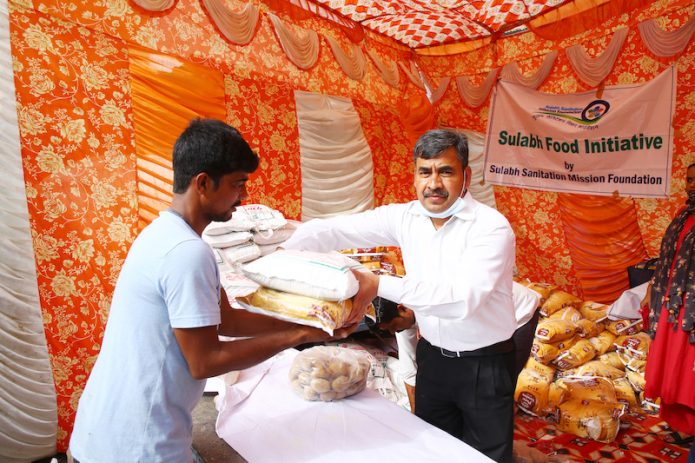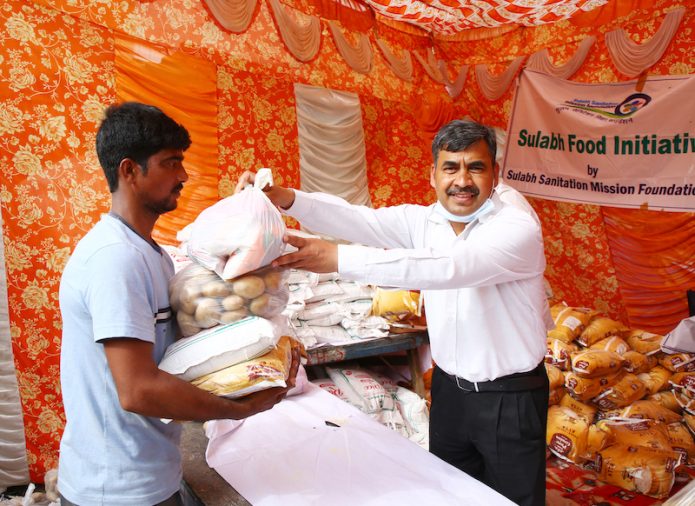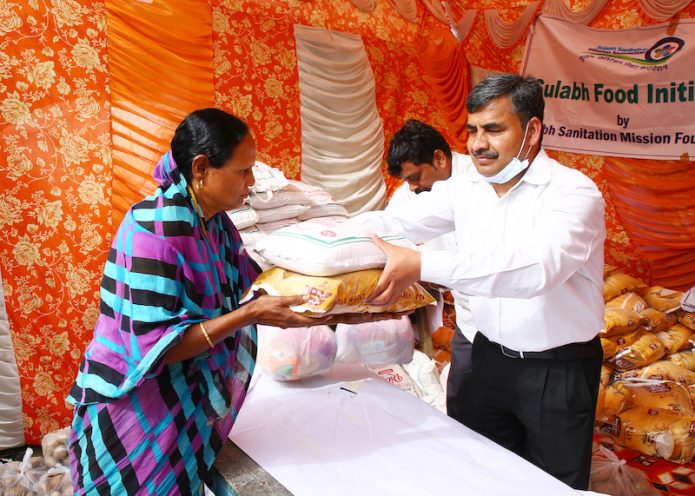Sulabh’s Food initiative is about helping families that have been hit hard because of the Covid 19 pandemic and pushed into abject poverty.
Poorer families that depend on daily wages or work in the informal sector are finding it hard to afford basic food and vegetables.
The pandemic and the resulting unemployment have made India’s hunger crisis alarming.
Our food distribution initiative is about addressing immediate food insecurity by putting food relief kit directly into the hands of vulnerable people living in urban slums and remote rural areas. The objective is to complement existing welfare schemes.
Our food initiative builds on Sulabh’s success and learning experiences of our national wide sanitation initiative
Food Distribution March 2021
We marked our 51st foundation day by distributing ration in New Delhi. Each relief packet contained five kilograms of rice and wheat, pulses, a litre of cooking oil, spices and soaps.
Under the leadership of Dr Bindeshwar Pathak , Sulabh’s mission has been to make communities resilient at the grassroots by addressing critical issues of water and sanitation.
During COVID 19 pandemic we rose to the challenge by distributing food and masks to the people who needed help.
Food Distribution June 2021
Ration kits were distributed to over 200 low income families in New Delhi. The kit contained rice, wheat , potatoes , soaps and other essentials. The distribution of kits is a part of our continued efforts to help communities in distress due to the Covid19 pandemic.
Food Distribution July 2021
Our new ‘Sulabh Food Initiative’ aims at food for the underprivileged strata of society.
Dry Ration was distributed to 60 families in dire need at Shakarpur, New Delhi.
Food Distribution August 2021
Through our 5th ‘Food Initiative’ drive in New Delhi, 45 ration kits were distributed to the needy families at Kali Bari temple in New Ashok Nagar.
Fighting hunger plays a key role in realigning the societal ethos thereby ensuring food security for all.
Food Distribution September 2021
Under ‘Sulabh Food Initiative’ on September 9th 2021, ration kits were distributed to 50 families in Maroda village, Mewat district, Haryana.
Each packet weighed around 20 kgs and suffice for the food requirement of a family of 4-5 members for 10-12 days.
Food Distribution November 2021
On the occasion of Deepawali one more food distribution drive was executed by Sulabh Sanitation Mission Foundation where around 100 ration packets were distributed amongst rag picker residents of Jatt Chaupal, Palam Village, near the Gokul Garden area.
Food Distribution December 2021
Through our “Sulabh Food Initiative” we distributed food packets and winter blankets to 60 families on 5th of December 2021 in Jhugis near Dwarka Sector-19 of New Delhi.
This locality is a slum area mainly populated by labour class People. They are homeless labors and used to reside in temporarily built Jhugis & Jhopdis made up of plastics. They either work as laborers in nearby locality, rag pickers, waste collectors, or as sweepers in parks and localities. During the Covid pandemic many of them lost their jobs. As a result of this they were pushed to live in abject poverty. Each packet weighs around 20 kgs and suffice for the food requirement of a family having four members for 15 days. A blanket for each family is also given to cope up with chilling winter.
Food Distribution December 2021
“Sulabh Food Initiative”. Under this noble initiative we distributed food packets and winter blankets to 30 families on 6th of December 2021 in Jhugis near Dwarka Sector- 23 of New Delhi. Each packet weighed around 20 kgs and suffice for the food requirement of a family of 4-5 members for 15 days.
Food Distribution May 2022
Under Sulabh Mission Food Initiative we distributed food packets to 150 families on 27th of May 2022 in slum area of Mithapur, Tughlakabad, New Delhi. This Slum area is mainly populated by labor class People. Theses Slum dwellers are mainly rag pickers while some of them are daily wages laborers too.
Each dry ration packet weighs around 20 kgs and can suffice for the food requirement of a family having four member for 10-12 days. Before distributing the food (Dry Ration), an initial survey of the targeted area was being conducted by our volunteers to identify intended beneficiary. To avoid gathering we followed coupon system. A list of beneficiaries was being prepared on the basis of initial survey. Consequently, a final list was being prepared after subsequent visits to filter out the real beneficiaries. We chose only those who are extremely poor and hit hard by the Pandemic.
